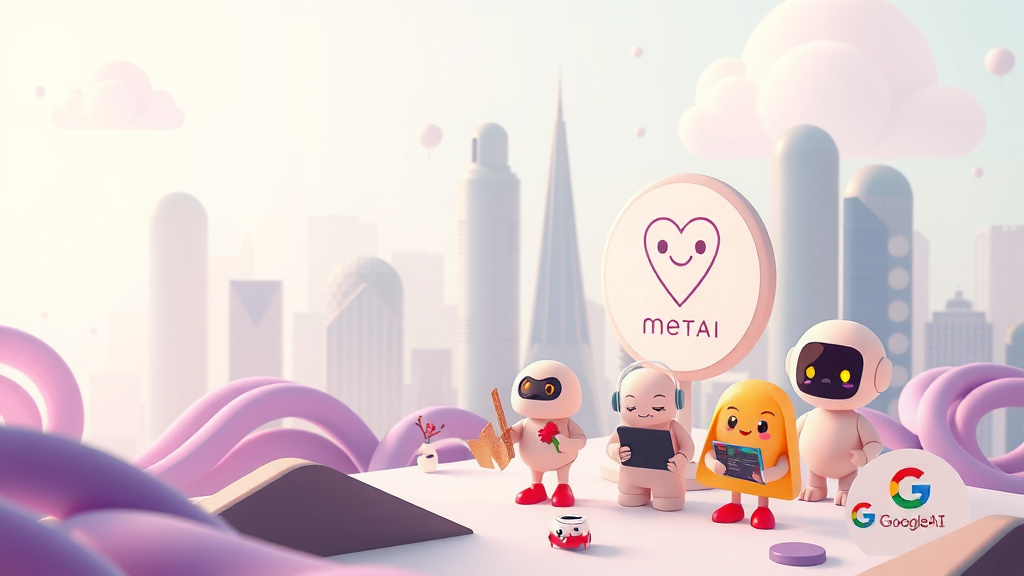The world of artificial intelligence is rapidly evolving, with major players like Meta, OpenAI, and Google racing to develop the next generation of AI technology. In this news brief, we'll explore the latest developments in AI, from Meta's standalone AI app to OpenAI's GPT-4.5 and Google's Gemini 2.0.
Meta's Standalone AI App
Meta is planning to release a standalone AI app that will compete with products like OpenAI's ChatGPT and Google's Gemini. The app will be free, but Meta will test a paid subscription service with more advanced capabilities. Meta's AI product is already integrated into its apps like Facebook and Instagram, but a standalone app will allow users to more deeply interact with its AI assistant.
OpenAI's GPT-4.5
OpenAI has released GPT-4.5, a significant update to its language model that focuses on emotional intelligence and reducing hallucinations. GPT-4.5 is a step forward in AI, but it also highlights the shift towards specialized AI models, where different models will serve different audiences and use cases.
Google's Gemini 2.0
Google co-founder Sergey Brin has emphasized the need for Google to "turbocharge" its efforts in AI, with the goal of building towards Artificial General Intelligence (AGI). Google's Gemini 2.0 is a key part of this effort, and Brin believes that Google has all the ingredients to win the competition to build AGI.
AI-Generated Child Abuse Images
In a disturbing development, police have arrested 25 people as part of a global ring that was distributing AI-generated images of child sexual abuse. This is one of the first major cases involving AI-generated child abuse images, and it highlights the need for greater regulation and oversight of AI technology.
AI Reliability and Security
A survey by Infragistics has found that digital trust is the top tech concern for 2025, with security, AI reliability, and talent gaps challenging software development teams. The survey also found that 73% of tech leaders plan to expand AI use within their organizations in the coming year.
AI and Mental Health
The use of AI is also having a significant impact on mental health, with experts warning that AI can decrease our ability to critically think for ourselves. However, AI can also be harnessed to make lives easier, and there are actionable steps that individuals can take to improve their relationship with AI technology.
IBM's AI Education Initiative
IBM is equipping the next generation of student developers across universities with AI skills, through its IBM SkillsBuild program. The program includes faculty training, online learning, hands-on labs, group innovation challenges, and practical real-world learning opportunities.
Key Takeaways
- Meta is planning to release a standalone AI app that will compete with OpenAI's ChatGPT and Google's Gemini.
- OpenAI's GPT-4.5 is a significant update to its language model that focuses on emotional intelligence and reducing hallucinations.
- Google is "turbocharging" its efforts in AI, with the goal of building towards Artificial General Intelligence (AGI).
- AI-generated child abuse images are a growing concern, and greater regulation and oversight are needed.
- Digital trust is the top tech concern for 2025, with security, AI reliability, and talent gaps challenging software development teams.
- AI can have a significant impact on mental health, but individuals can take steps to improve their relationship with AI technology.
- IBM is equipping the next generation of student developers with AI skills through its IBM SkillsBuild program.
Sources
- Meta to Release Standalone AI App to Compete With ChatGPT
- GPT 4.5 Marks A Significant Shift In OpenAI Strategy, Here’s Why.
- Police Bust Global Ring Sharing AI-Generated Child Abuse Images
- Sam Altman’s 8-Word Response to Meta’s Rumored ChatGPT Clone Is a Masterclass
- Sergey Brin says ‘final race to A.G.I. is afoot’ and Google has to ‘turbocharge’ efforts
- Saudi Arabia’s AI Push
- Security Threats, AI Reliability Top 2025 Software Development Challenges
- 2 Top Artificial Intelligence (AI) Stocks to Buy On the Dip Amid Nasdaq Selloff
- The Future of Your Mental Health on Artificial Intelligence
- IBM is equipping the next generation of student developers across universities with AI skills
